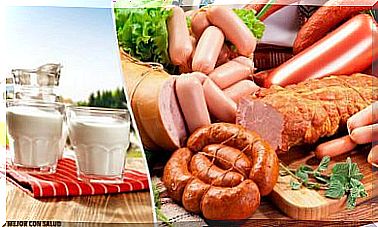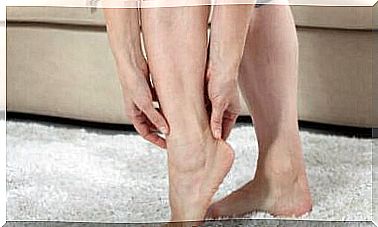What Are The Main Causes Of Abdominal Pain?
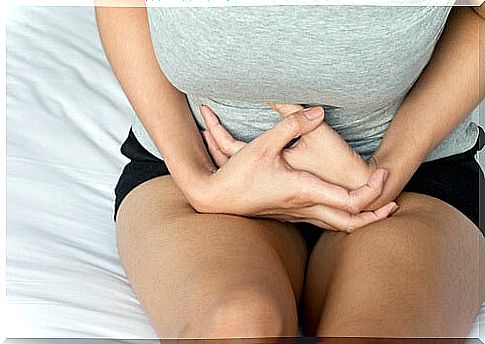
There are many factors that can lead to abdominal pain. In this article, we will explain some causes of abdominal pain and also give you some simple remedies.
Causes of abdominal pain
Pain in your stomach is more common than you think. Researchers have discovered that at least 30% of the world’s population suffers from this pain with some regularity. However, it is generally not called a disease. It is often just a minor defect in your digestive system.
The intensity of the pain you feel determines how severe the abdominal pain is. However, if you suffer from these abdominal pains quite often and you experience some of the symptoms below, it is recommended that you contact your doctor.
Let’s take a look at what factors are associated with abdominal pain.
1. Nerves

Sometimes anxiety or stress can build up in your ‘second brain’, or your stomach. Nerves are often concentrated in this part of your body and they can negatively affect your digestion, causing heartburn or even diarrhea.
So if you occasionally suffer from this problem, don’t worry. It’s probably due to stress. However, now that you know where your stomach aches might be coming from, it’s a good idea to try to manage your anxiety and stress. This way you avoid more serious inconveniences.
2. Gases
This is also a common problem. Poor digestion or some foods can cause irritating intestinal gas. These are often concentrated in your stomach cavity, just below your ribs. These can cause sharp pains, especially when you take a deep breath.
3. Heartburn

Gallic reflux and heartburn are also common conditions that start with abdominal pain in the upper part of your stomach. Acids always go up, meaning this pain is concentrated in your esophagus, which can be found at the top of your digestive system.
4. Irritable Bowel Syndrome
Intestinal infections often cause this type of discomfort. This disorder falls under the category of organic dyspepsia. That is, your digestive system is suffering from a digestive disease. If you have diarrhea or constipation, are vomiting and have frequent intense pains, we recommend that you contact your doctor immediately.
5. Certain drugs
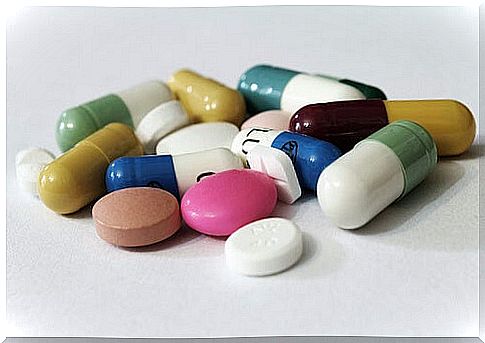
For example, if you’re taking iron supplements or have recently taken ibuprofen, you’re probably experiencing some abdominal pain. These drugs cause you to have a slight burning sensation in your stomach, which can last for several hours. It’s nothing serious, but it’s annoying.
6. Eating too fast
Remember that to properly digest food, you should always eat slowly, exposing your food to greater amounts of saliva. This part of your digestive system is required to mix the chewed food. If you eat too fast, you are more likely to experience stomach pains.
7. Ulcers
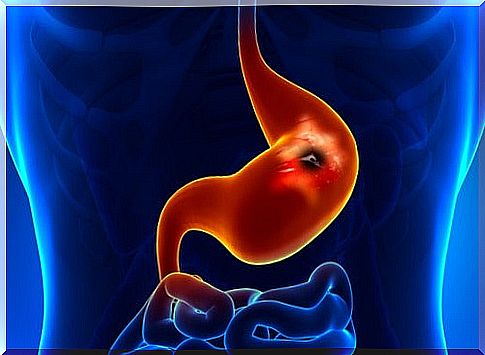
Does your stomach hurt when you consume certain foods? Especially when those meals are heavily seasoned or spicy? Do you vomit regularly? Do you see blood in this? If you answered yes to these questions, you should contact your doctor immediately. You may have a stomach ulcer.
Abdominal Pain: Remedies
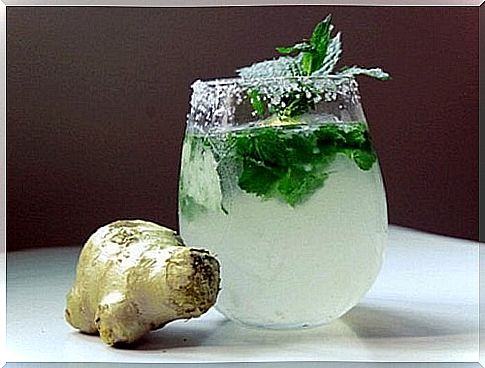
- Anise and mint tea after dinner. These drinks are excellent for your digestion and they will relax your muscles and relieve abdominal pain. You can drink a maximum of 3 cups of this per day.
- ginger tea. This drink soothes your stomach and aids digestion. Do not hesitate to drink a cup of this tea after dinner. You will definitely notice the positive results.
- Sage and chamomile. You may have heard about the benefits these two medicinal plants provide to your stomach and intestines. In addition to being sedatives, they relieve pain and inflammation. You can drink a maximum of one liter of this per day. It will surely help you with your stomach problems!
- A warm bath and massaging your abdomen. Nothing is better for relaxing your stomach nerves and tension than a warm bath. After bathing, you can also massage your belly with a lavender or almond oil. Massage in circles and then place a warm cloth on your stomach. You should feel a lot better afterwards.
- Remember to always chew your food well and eat slowly. We also do not recommend eating very large meals. Five small meals throughout the day is ideal and you should focus on breakfast and lunch. The lightest meal is ideally your dinner. Finally, don’t forget to drink plenty of fluids.

